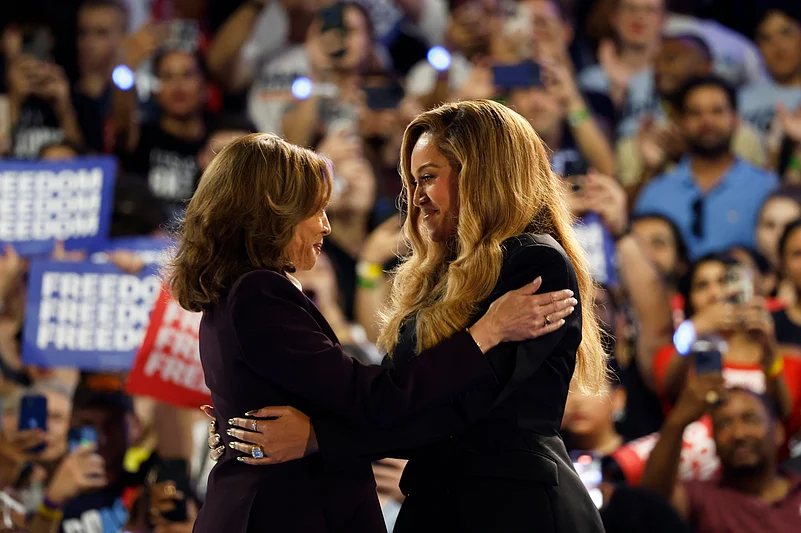Celebrity endorsements have become a staple of United States presidential campaigns over the past 100 years. With their massive followings and cultural influence, celebrities can shift voter sentiments and mobilise public participation, particularly among younger voters. However, the effectiveness of these endorsements in the ongoing campaign remains a topic of debate.
Hollywood actor George Clooney set the ball rolling for endorsements in 2024 when he publicly showed his support for Democratic candidate Kamala Harris stating, “President Biden has shown what true leadership is. He’s saving democracy once again. We’re all so excited to do whatever we can to support Vice President Harris in her historic quest.” This came after he harshly criticised Biden for running in the elections initially.
Several celebrities including Barbra Streisand, Taylor Swift, John Legend, Mark Hamill, Robert De Niro, Lizzo, Jamie Lee Curtis, Cardi B, Kesha, Billie Eilish, Eminem, Usher and Cher soon joined the bandwagon in support of Harris. In the last leg of the campaigning, singer-songwriter Beyonce Knowles also joined Harris during a public interaction where she said, “I'm not here as a celebrity, I'm not here as a politician. I'm here as a mother,” and actor Leonardo Dicaprio also extended his support for the Democrats.
When it came to Republican candidate Donald Trump, the support of Tesla and SpaceX CEO Elon Musk received most attention in the last few months of campaigns as he attended rallies and reportedly donated over $119 million to Trump’s campaign and even promised $1 million each day to supporters of his petition for free speech and gun rights. Actors Dennis Quaid, Jon Voight, Rosanne Barr and Zachary Levi along with musicians Kid Rock, Amber Rose, Chris Janson, Jason Aldean, reggaeton star Nicky Jam and Azealia Banks have all expressed support for Trump. Other names include Steve Wynn, Bill Ackman, Marc Andreesen, Dan Snyder, Linda McMahon, Diane Hendricks and Miriam Adelson.
The endorsement from Taylor Swift, who has over 552 million followers across social media platforms, reportedly sparked over 400,000 visits to vote.gov the next day, showing her ability to motivate voters. Taylor Swift’s endorsement soon led to a viral post by Donald Trump, who wrote “I hate Taylor Swift” on the microblogging platform X without any context. Some of the social media users speculated that Trump was taken aback by the momentum created by Swift’s fans, aka ‘Swifties’.
However, a Newsweek survey found that that only 6 per cent of respondents felt Swift's endorsement made them more likely to vote for Harris, while 13 per cent said that they were less likely to vote for Harris after this. About 81 per cent stated that it had no impact at all.
According to a recent Harvard University study, celebrity-backed initiatives in voter registration and poll worker recruitment often result in immediate spikes in public participation. Political expert Ashley Spillane, who is the author of the study, states that “young voters have relatively low levels of trust in traditional leaders and institutions, including the news media, but celebrities are often a rare exception.” This was illustrated in 2020 when Taylor Swift’s endorsement of Joe Biden led to a remarkable 35,000 new voter registrations in just one day, as reported by Vote.org. Oprah Winfrey's backing of Barack Obama in 2008 similarly drove an estimated one million additional votes.
The current presidential race between Donald Trump and Kamala Harris has drawn an array of celebrity endorsements, amplifying the messages from both camps. This trend dates back to the early 20th century, with figures like Al Jolson supporting Warren Harding and, later, Frank Sinatra campaigning for John F. Kennedy.
The impact of these endorsements is not universally positive. Research indicates that overexposure to celebrity advocacy can lead to voter fatigue, causing potential supporters to tune out entirely. Moreover, not all celebrities wield the same influence. While figures like Oprah and Swift have genuine convictions that resonate with audiences, many celebrities are perceived as self-serving, prompting scepticism from voters.
This scepticism is particularly relevant in today’s political climate, where celebrity endorsements could be perceived as mere publicity stunts. In 2016, Trump had celebrities like Mike Tyson and Kanye West supporting him. Tyson, who despite being a convicted rapist had reportedly helped Trump gain some trust among Black voters. Black voters make up about 11–12 per cent of the U.S. electorate, but Trump only received 8 per cent of their votes in both 2016.
Moreover, the fast growth of social media amplifies both the potential and the pitfalls of celebrity influence. While celebrities have the power to inspire political engagement, they also risk spreading misinformation and polarizing their audiences. The phenomenon of "cancel culture" further complicates this landscape, as celebrities face significant backlash for controversial statements, which can lead to diminished public support.





























